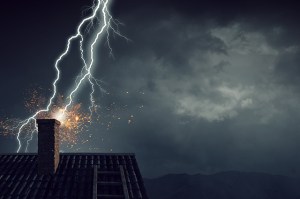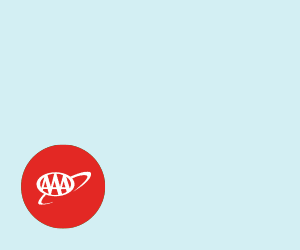Few things are as distressing as discovering a flood in your home. Whether it’s from heavy rainfall, a burst pipe or a natural disaster, the aftermath can be overwhelming. Where do you even begin?
Read on to learn what to do if your house floods, including steps to take when faced with a flooded space, how insurance can help and the long-term strategies for preventing damage.
What To Do if Your House Floods
How to Deal With Flood Damage
Make sure it’s safe.
The safety of you and your family is top priority, so if the flood is severe, evacuate immediately and seek higher ground. It’s also wise to avoid walking or wading through floodwaters as they can contain hazardous materials and pose dangers you may be unable to see.
Document the damage.
Although it may seem like a good idea to start cleaning up as soon as possible, it’s best to document the extent of the damage before anything else. Take photos and videos of affected areas to provide evidence for insurance claims; this makes the process easier for both you and your provider.
Contact your insurance provider.
Speaking of insurance, you should notify your insurance company of the incident as soon as possible. Provide them with your documented evidence of the damage and follow their guidance on the next steps in the process.
Start cleaning.
Once it’s safe to reenter your home, begin the cleanup process quickly to prevent further damage. Remove standing water by using pumps and/or wet/dry vacuums and dispose of damaged items that cannot be salvaged.
Dry and disinfect.
It’s important to thoroughly dry the affected areas to prevent mold growth. To do this, run dehumidifiers and fans until no sign of moisture is present. Once dried, disinfect all surfaces, furniture and small items to eliminate any potential toxins from the floodwater.
Inspect structural damage.
Water is corrosive and can cause irreversible damage to the structural integrity of your home. Look for signs of damage to the foundation, walls and support structures especially, but all areas should be inspected as a precaution. If you have concerns about the safety of your home, consult with a professional to evaluate further.
How to Reduce and Prevent Flood Damage
Even if you don’t live in a flood region, you could still be affected by unexpected water in your home.
“Flooding does not only occur in coastal communities. Floods can occur just about anywhere,” said Jodi DeSantis, vice president of insurance sales at AAA Northeast. “Floods may result from rain, storm surge, overflows of water systems and can develop slowly or very quickly. Flash floods often come without warning as we have seen in communities within our AAA Northeast region recently.”
To set yourself up to be as flood resistant as possible, consider investing in flood insurance. While standard homeowners’ insurance may cover some water damage, it often excludes flooding, which means you’ll need a separate policy.
More ways to prevent flood damage in your home include:
- Elevating electrical outlets, switches and wiring so they are at least 1 foot above the expected flood level in your area.
- Installing a sump pump.
- Properly sealing and insulating cracks in the home’s foundation or walls.
- Installing water alarms.
- Ensuring proper drainage in and around the property.
- Get more tips and flood precautions from the Insurance Information Institute.
These products can help you stay prepared in the event of a flood.
Learn more about flood insurance with AAA.
Play Wordrow!
Hint: A proactive strategy aimed at reducing or preventing the negative impacts of a potential disaster.
This article has been updated and republished from a previous version.
One Thought on “What To Do If Your House Floods”
Leave A Comment
Comments are subject to moderation and may or may not be published at the editor’s discretion. Only comments that are relevant to the article and add value to the Your AAA community will be considered. Comments may be edited for clarity and length.















When you have any type of flood (water, sewage) damage in your house the first phone call you should make is to a PUBLIC INSURANCE ADJUSTER. You free your self of all the emotional pain & grief in dealing with your INSURANCE company. A PUBLIC INSURANCE ADJUSTER will leave no stone unturned. They get 10% of your claim, but we’ll worth it. Did you ever hear an INSURANCE company or agency tell their claimant to contact a PUBLIC INSURANCE ADJUSTER? NO! NEVER!